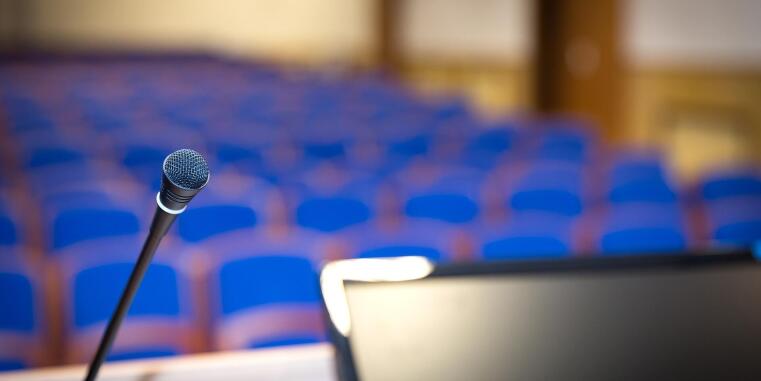

Termine im SS 2025
Donnerstag, 16 Uhr c.t.
Ab 16 Uhr sind alle Zuhörerenden zum Kolloquiums-Kaffee vor dem HS 2 eingeladen.
Ort: HS 2, IG 1, Wilhelm-Klemm-Str. 10, 48149 Münster
Falls Sie die wöchentlichen Ankündigungen per E-Mail erhalten möchten, schreiben Sie gerne an physkoll@uni-muenster.de.
10.04.2025 Prof. Reza Kamachali / Jun.-Prof. Diana Khoromskaia
Vortragsankündigung [PDF]
Antrittsvorlesungen
Prof. Dr. Reza Darvishi Kamachali, Institut für Materialphysik, Universität Münster:Thermodynamics of defects in alloys’ microstructuresJun.-Prof. Dr. Diana Khoromskaia, Institut für Theoretische Physik, Universität Münster:Physics of tissues as active multi-scale materials24.04.2025 CRC 1459 Colloquium / Prof. J. Boekhoven & Prof. P. ten Wolde
Vortragsankündigung [PDF]
Prof. Dr. Job Boekhoven, Department of Bioscience, Technical University of Munich, Germany:
“Regulating non-equilibrium self-assembly with chemical fuels”Prof. Dr. Pieter Rein Ten Wolde; AMOLF, The Netherlands:
„Quantifying the flow of information"
Bitte beachten Sie die geänderte Uhrzeit und den Ort: 15 Uhr s.t. im Center for Soft Nanoscience (SoN).
08.05.2025 Prof. Eric Laenen (NIKHEF and Univ. of Amsterdam and Utrecht)
Vortragsankündigung [PDF]
The European Particle Physics Strategy, Future Circular Collider and CERN
This year and the next few will be crucial for the future of CERN and particle physics in Europe. This future is being shaped through the European Strategy for Particle Physics (ESPP) update, which is currently ongoing. A key input is the recently released feasibility study for the possible Future Circular Collider (FCC) at CERN. In this talk I will review the governance of CERN, the ESPP process and its status, the finding of the feasibility study, and what physics could be done such a collider.
15.05.2025 Prof. Michael Kues (IOP, Leibniz University Hannover)
Vortragsankündigung [PDF]
Non-classical frequency combs and processing for quantum networks
Today’s quantum technology relies on the realization of large-scale non-classical systems in practical network-compatible formats to enable quantum resource sharing, secure communications and distributed quantum-accelerated computing. Optical quantum frequency combs, characterized by many equidistantly spaced frequency modes, allow the storage of large amounts of quantum information and together with telecom-compatible control mechanisms can provide practical large-scale quantum systems for the realization of scalable quantum networks. In this presentation, I show the fully laser-integrated generation of quantum frequency combs and the realization of practical coherent quantum frequency processing circuits. I will discuss the advantages of the frequency-based processing capability and show two application examples; the realization of a Serrodyne transceiver for hybrid quantum-classical signal transmission and, the demonstration of entanglement-based frequency-bin quantum key distribution with massively reduced hardware use and multiplexing capabilities. These results contribute to realizing the complexity-reduced, scalable deployment of large-scale quantum networks.
22.05.2025 Prof. Bruce Allen (MPI für Gravitationsphysik, Hannover)
Vortragsankündigung [PDF]
Pulsar timing arrays and the detection of low-frequency gravitational waves
Pulsar timing arrays (PTAs) detect gravitational waves (GWs) via the correlations they create in the arrival times of pulses from different pulsars. The mean correlation, a function of the angle between the directions to pulsars, is called the Hellings and Downs (HD) curve. Observation of this pattern is key evidence that the timing residuals arise from GWs, so PTAs "reconstruct the HD curve" by estimating the inter-pulsar correlation using pulsar pairs separated by similar angles. I'll talk about how PTAs work, and about a recent paper with Joe Romano (PRL 134, 031401, 2025) where we examine the reasons why the HD reconstruction differs from the mean, and estimate the variance. I'll also talk about some work in progress, to extend this to a harmonic space description.
26.06.2025 Prof. Frank Wilhelm-Mauch (FZ Jülich) / Verleihung des Lehrpreises
Vortragsankündigung [PDF]
Quantencomputing - die Physik hinter dem Hype
03.07.2025 Sommerfest IG1 (FB Physik)
10.07.2025 Prof. Hartmut Löwen (Theoretische Physik, HHU Düsseldorf)
Vortragsankündigung [PDF]
tba
...
17.07.2025 Prof. Fedor Mitschke (Institut für Physik, Universität Rostock)
Vortragsankündigung [PDF]
tba
...

